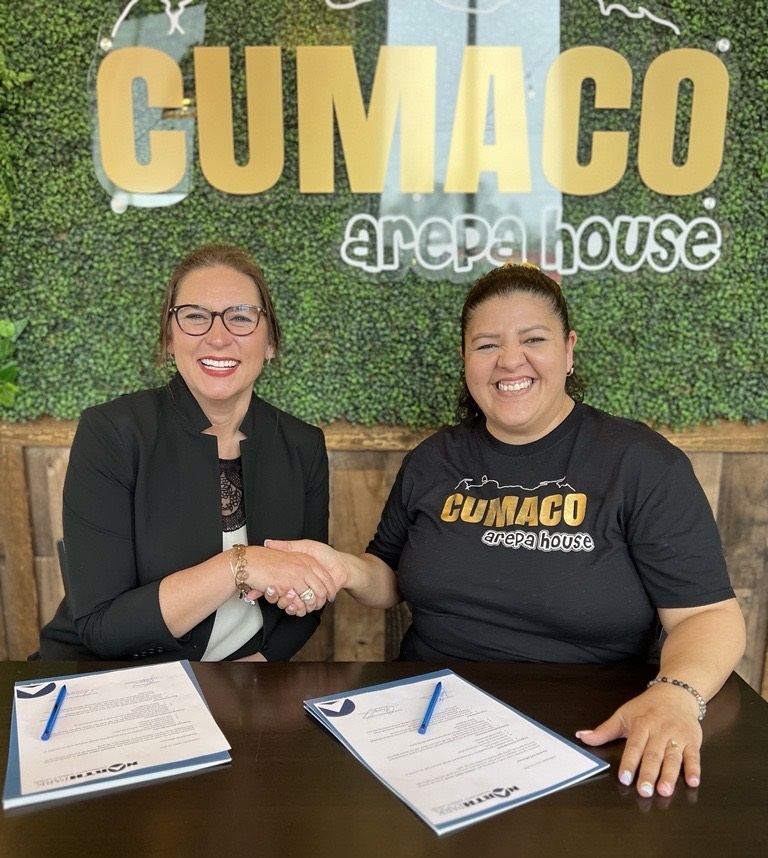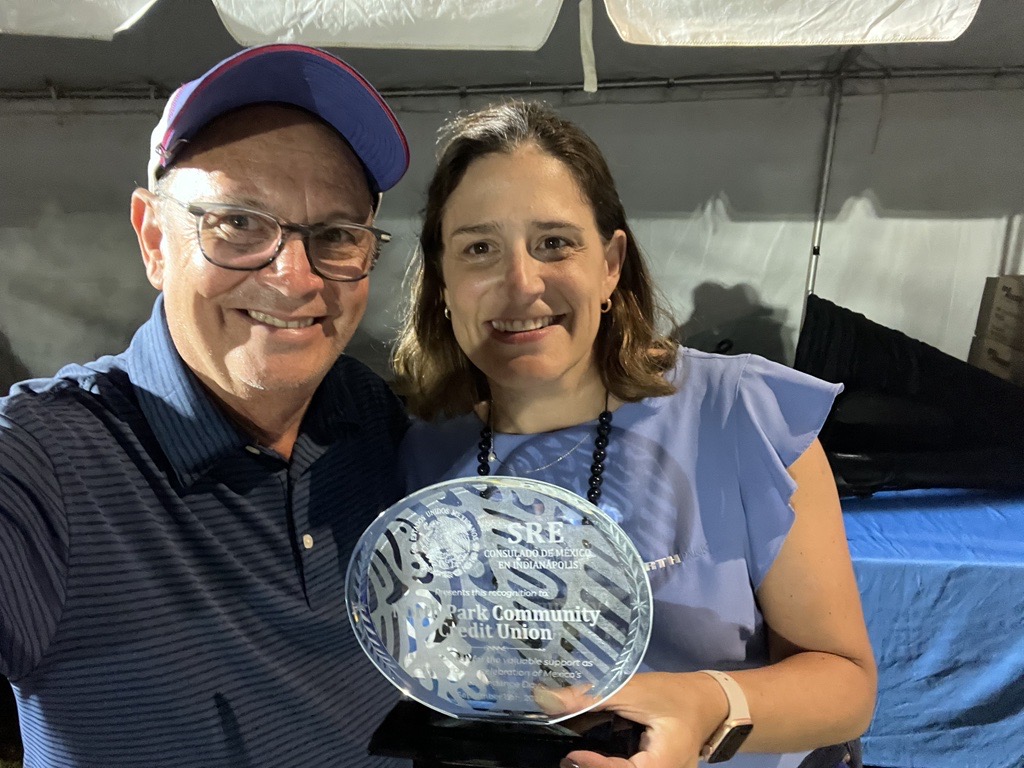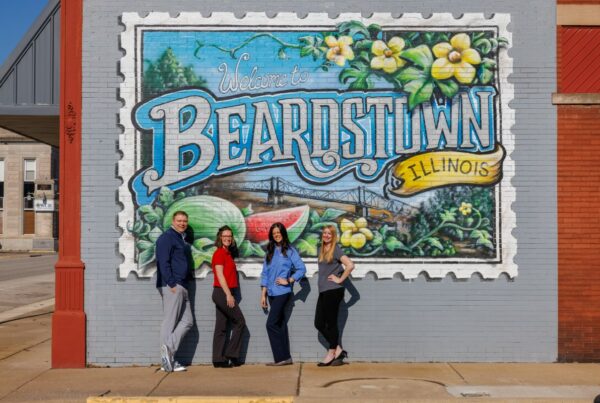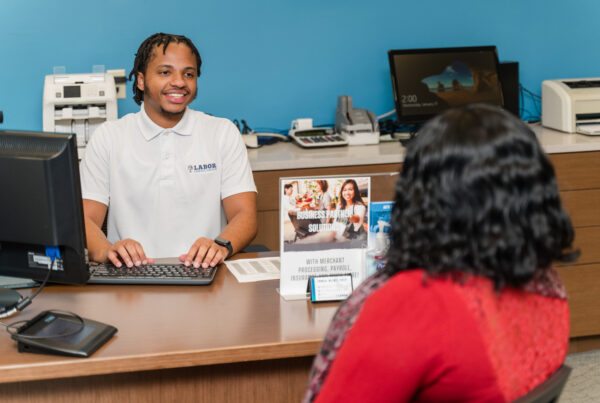How does an infant with hearing loss, an ill anesthesiologist, and a Chapter 13 bankruptcy lead to the first fully virtual credit union in the United States? It starts with Carma Parrish and her son, Logan.
Logan was born with a fifty-percent hearing loss. The School for the Deaf in Indianapolis recommended surgery to help him regain full hearing, and in 2011, Logan received this life-changing surgery. Everything went great—until a $30,000 medical bill showed up.

Carma Parrish, CEO of NorthPark Community Credit Union. Photo Credit: NorthPark Community Credit Union
Despite obtaining approval from the insurance company before the operation, the company billed the Parrish’s, citing the surgery was completed out of network. When Carma pushed back, she learned that the in-network anesthesiologist had called in sick on the day of her son’s surgery. The surgeon called in a favor from an out-of-network anesthesiologist for Logan’s procedure. No matter who she spoke with at the insurance company or the hospital, she received the same answer: “You owe $30,000.”
Carma called her senator, her congresswoman, and even the attorney general’s office where she filed an official complaint. Despite this, the hospital administration sent the sheriff to the Parrishs’ employers to garnish their wages. At the time, Carma was a vice president at a small local credit union—with an equally small paycheck. While the family was financially responsible, the budget was tight. They did not have $30,000, and now without paychecks, the mortgage, utilities and groceries became daunting hurdles.
Carma and her husband saw no option but to file for Chapter 13 bankruptcy to save their home and regain their paychecks. However, to be eligible for bankruptcy, they actually had to take on more debt—a car loan. The couple hid their bankruptcy from family and their employers not just out of shame but because of the fear that she would be fired.
Per Chapter 13 rules, for the next five years, Carma and her husband were not allowed to take out any new debt, could not amass savings, nor could they receive a tax return—a nearly impossible feat to survive. Statistics indicate only 1% of people who file Chapter 13 bankruptcy make it out—the other 99% turn it into a Chapter 7 filing. If this happened to the Parrish’s, they would lose their home. “That we survived shows it wasn’t an issue of fiscal responsibility: we were in the wrong place at the wrong time.”
Table of Contents
The All-of-a-Sudden CEO, and the Failing Credit Union
Carma’s right place/right time came in 2015. Her employer was grooming her to take over as CEO of the credit union ten minutes from her house. Carma was tasked with traveling around to credit unions near and far, learning about software, and choosing one to implement for a core conversion update for her institution.
This endeavor led Carma to NorthPark Community Credit Union, where she was offered the position of vice president of marketing on the spot. Carma took the job.

Photo Credit: NorthPark Community Credit Union
Within two months, the entire senior leadership team was gone, and Carma became NorthPark Community Credit Union’s CEO overnight. Her first meeting was with the credit union’s accountant. The news was bleak: the electricity bill was past due, the power was set to be turned off, there wasn’t enough liquidity to make payroll, and a budget had to be ready for her first board meeting that evening.
Carma had a decision to make: Find a new job or try to save NorthPark. Ultimately, it wasn’t a difficult choice when she met the staff and learned of the families depending on their employment—Carma stayed. “It was the most bizarre thing and made no professional sense, but I felt led there.”
In 2018, a year after the Parrish’s’ Chapter 13 requirements were finally complete, Carma crashed her car. “I couldn’t get a car loan to save my life,” Carma says, despite having A+ credit and a well-paying job.
Frustrated, Carma turned to Cindy Duke, the CEO at Natco Credit Union, known for offering lending options to people after a bankruptcy. Cindy didn’t disappoint, but there was a catch: “Cindy said ‘I will do this loan for you on one condition: You have to adopt this lending strategy at NorthPark.’”
Challenge accepted. Carma’s personal journey is how NorthPark Community Credit Union came to serve the underserved.

Photo Credit: NorthPark Community Credit Union
Strategically Thinking Outside the Box
NorthPark began serving individuals with what Carma refers to as “colorful credit,” including those who’ve had significant life events—medical emergencies, unexpected layoffs, divorces, loss of loved ones—that have negatively affected their ability to pay and consequently, their lendability. The transformation included partnering with CNote through its Impact Cash® Solution, which channels dollars from socially-minded investors to mission-driven and FDIC- and NCUA-insured CDFI partners, like NorthPark.
“We want to help people get back on their feet again,” Carma says. “We do not give handouts; we give hand-ups. We are not a charity; we are not for profit. If you invest in us and do the work, then we’ll take a chance and invest in you.”
Under Carma’s leadership, NorthPark has taken strategic steps to recreate itself, decreasing its portfolio of 80% participation loans by 30% as they switched to only organic loans while simultaneously doubling its average loan yield from 4% to 8%. Even though a high-yielding loan portfolio means higher charge-off ratios, the net loan yield still comes higher than most credit unions gross loan yield.
Lending to those often considered unbankable, NorthPark has achieved a net yield of over 6%, including fee income. Compare that to other socially minded credit unions, which have a median yield of 3.75%.

Photo Credit: NorthPark Community Credit Union
“You can’t just say we need to have a big heart and do this,” Carma says, “because that’s not going to work. If you look at the mathematics of this philosophy, it works. It’s not just good for the heart. It’s good for the balance sheet. It’s good for the income statement. This is what credit unions were built for.”
Passionate for the financial health of the community, Carma believes credit unions have become far too reliant on automated decisioning, which often selects against people with credit scores less than 640. Such practices tend to leave BIPOC borrowers—and people like the Parrish family simply in the wrong place at the wrong time—on the sidelines.
“How can you say you’re serving your community when you rely on auto-approvals?” Carma believes these people will turn to another lender who doesn’t meet their needs or who charges them predatory rates. “Even worse, they’ll go to a payday loan company. This is what we tell them are their options when we depend so heavily on automated decisioning.”
Motivated To Make Change
During the credit union’s makeover, Carma, her team, and her board decided to transition NorthPark Community Credit Union into the country’s first and only fully virtual credit union. Many of her staff stood behind the teller line, waiting to cash checks when Carma needed them to serve their community and perform more income-generating activities. By going virtual, NorthPark could also minimize its operating expenses to improve its owners’ capital for the greatest return.
Carma surveyed her staff to see what they wanted to do at the virtual credit union—she wanted to know what their dream jobs entailed. As NorthPark began educating members to prepare to switch to virtual transactions, Carma provided professional development opportunities for her team members to move up and develop within the virtual credit union, assuring them, “If you invest in NorthPark, we’ll invest in you.”

Photo Credit: NorthPark Community Credit Union
Things began looking up for NorthPark and Carma. The credit union readied itself to go fully virtual, with the first branch closing and the second one to be announced to the Board when COVID hit that same month. Overnight, NorthPark went 100% virtual and closed the remaining two branches. The credit union remains 100% virtual today for both its members and staff.
Carma tracks NorthPark’s results to ensure the credit union continues to strengthen. The strategy seems to be working. NorthPark has attracted a broader pool of employees and members, and Carma can recruit top performers without the constraints of geography. Over 30% of Carma’s team lives outside Indiana, representing seven states and Puerto Rico. Nearly 30% of her team is dedicated to full-time community initiatives—and that number continues to grow.
“We say that we never sought to be a virtual credit union,” Carma said. “We sought to be a community credit union, and virtual just enabled it.”
As NorthPark continues to succeed, Carma continues to find motivation in her son—a strapping 6’4”, 16-year-old lineman—and in their shared story. In 2013, Indiana’s legislature passed ‘Logan’s Law,’ written to make sure insurance companies and hospitals cannot do to others what they did to the Parrish’s. An advocate for medical transparency and healthcare reform, Carma has testified in front of lawmakers about the interrelatedness of physical and financial wellness.

Photo Credit: NorthPark Community Credit Union
Today, Carma challenges other credit unions to rethink their models and to train the next generation of CEOs to return to what credit unions were built for. Armed with NorthPark’s success stats, she explains that by taking on slightly more risk, these institutions can do so much more for their communities and their profits.
“It’s always a good reminder to not just accept things for what they are and to meet people where they are,” Carma said. “When we give people hope and opportunity, we make a difference in their lives, and that’s really what motivates me to seek change.”
Learn More:
- NorthPark Community Credit Union serves Central Indiana and is the one and only fully virtual credit union in the United States.
- CNote is a women-led investment platform that empowers individuals and institutions to invest locally to further economic equality, racial justice, gender equity, and address climate change.








